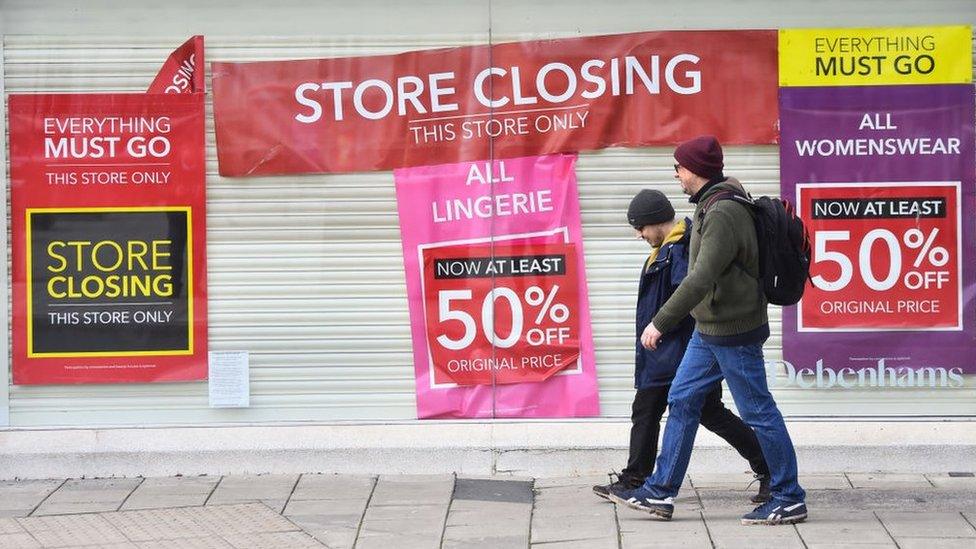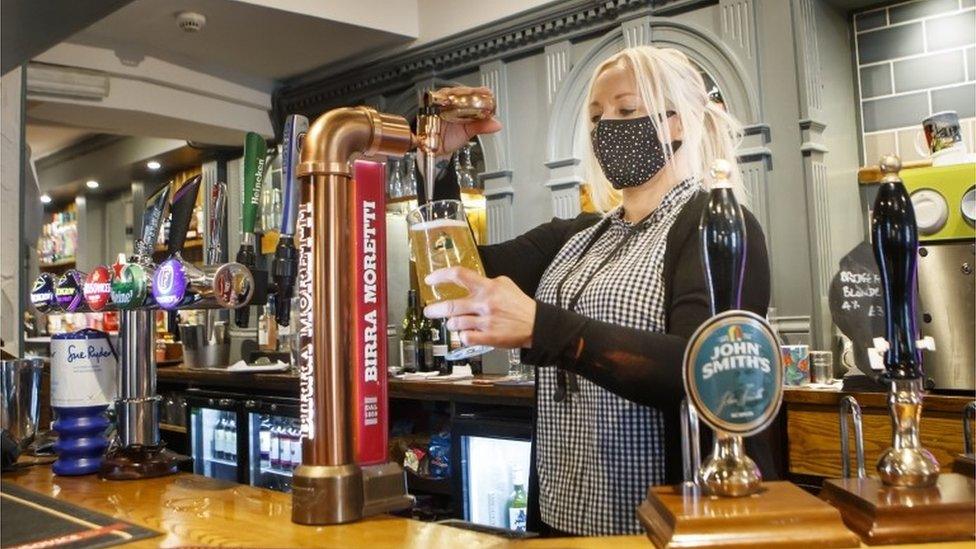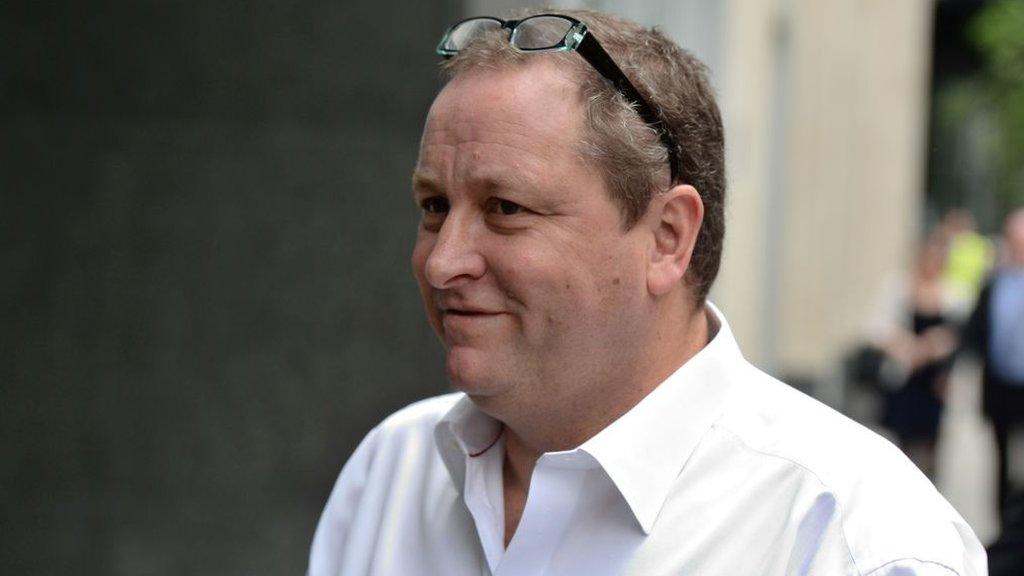High Streets: 'Catastrophic blow' as business rates appeals denied
- Published

The Treasury has been criticised for saying it will legislate to "rule out" Covid-related business rates appeals.
Experts said the legal change on appeals would be a "catastrophic blow" for many firms hit by the property tax.
Retail, hospitality and leisure have benefitted from a rates "holiday", which was announced at the start of the crisis.
It will continue until the end of June, with discounts in place until next year.
But many supply chain firms and commercial property owners have been ineligible for much of this support.
The Treasury said those unable to receive rates relief have appealed against their bills as a result, arguing that they have been hit by a "material change of circumstance" due to the pandemic.
But the government will now legislate to "rule out" Covid-19 related appeals. Instead the government will provide a new £1.5bn pot of funding.
It said the money will be distributed to sectors which have "suffered most economically" outside the retail, hospitality, and leisure sectors.
'Draconian' decision
Robert Hayton, UK president of property tax at the real estate adviser Altus Group, criticised the move.
He said: "This will be a catastrophic blow for businesses who have spent the last year lawfully pursuing business rate adjustments only to have their statutory legal right ripped from them to allow the government to roll out a wholly inadequate scheme which won't deliver enough business rates support and threatens the post-pandemic recovery."
Data from the HMRC's valuation office agency showed that 303,260 properties, including offices, pubs and retailers, lodged appeals in 2020 - more than three times the number seen in 2019.
The government said that allowing rates appeals on a "material change in circumstances" could have led to "significant amounts of taxpayer support going to businesses who have been able to operate normally throughout the pandemic".
It added this could disproportionately benefit firms in London.
Keith Cooney of property consultancy Knight Frank also labelled the decision as "draconian".
"It is retrospective and therefore will penalise the estimated 400,000 businesses that have applied for a reduction by sensibly appealing their rating assessments," Mr Cooney said.
"These are businesses that do not benefit from the rates holiday extended for the retail, leisure and hospitality sectors, and would have a strong case for a reduction of up to 25% as a result of the economic impact of Covid-19."
Shadow chancellor Anneliese Dodds also said that the decision, taken weeks after the Budget, would cause "more confusion for business".
"Now [Rishi Sunak] has had to go back to the drawing board yet again, while businesses are left counting the cost of more chopping and changing from this chancellor."
But the Federation of Small Business welcomed the move, saying small firms would be "relieved".
"Many of those businesses such as wholesalers, suppliers and brewers have been hit hard by the pandemic but haven't been able to access the same levels of support," its national chair Mike Cherry said.
He added, however, that it was "crucial" these funds are distributed as quickly as possible to those who need it most.
Chancellor Rishi Sunak said: "Our priority throughout this crisis has been to protect jobs and livelihoods.
"Providing this extra support will get cash to businesses who need it most, quickly and fairly.
"By providing more targeted support than the business rates appeals system, our approach will help protect and support jobs in businesses across the country, providing a further boost as we reopen the economy, emerge from this crisis, and build back better."
- Published3 March 2021

- Published5 March 2021
